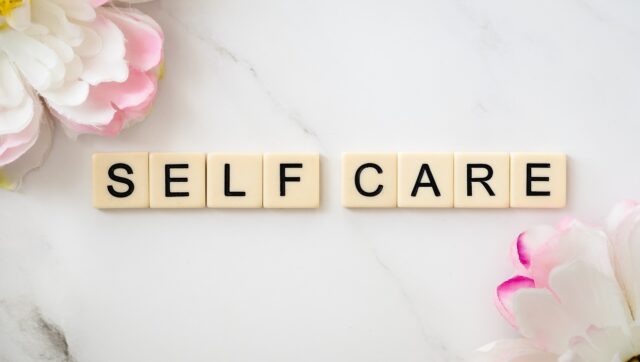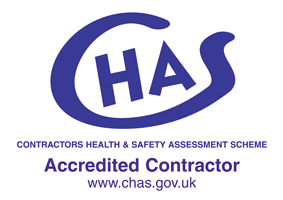
Did you know that approximately 6.5 million people in the UK provide unpaid care for a loved one or friend?
As fulfilling and rewarding as it can be, it can take its toll on your own health. Whilst you focus on providing the best standard of care you can, you may often neglect your own needs whilst being faced with a range of potential frustrations and challenges.
As we say on our website, “Many carers can find themselves understandably overwhelmed by the pressures a caring role can bring. Perhaps they struggle to enjoy a life outside of caring or are impacted physically and emotionally by the role.”
This is when the old adage stands true. You need to put your own oxygen mask on first if you want to continue to be a carer without reaching burnout or suffering from carer depression.
This Stress Awareness Month 2022 (April), we want to show carers of all ages how they can balance the demands being placed on them and thrive in their caring role. Here are some of our suggestions.
1. Share how you are feeling
Caring for someone you love may not always be easy and can trigger a variety of feelings that you might not know how to cope with.
Talking to someone you trust such as a family member, friend, carer’s support group or someone at The Carers Centre may make things more manageable. The friendly team here are skilled at listening and empowering carers to take back their independence and grow their resilience to the demands being placed on them.
If you’d prefer not to involve family or friends, consider joining one of the many online support groups that can provide the support you need at the touch of a button.
Excellent options include:
2. Find out what help is available
Many carers believe that they have to shoulder all the care burden or that asking for help is a sign of weakness or an inability to cope. Yet seeking help could be key to ensuring your loved one receives an outstanding level of care whilst reducing your stress levels and making it easier to cope.
If you haven’t already, contact Carers Hub for a free carer’s assessment. Their team will chat with you over the phone or face to face to discover how caring might be affecting your physical and mental health, work, free time and relationships. They can also offer solutions such as respite care, information, help with caring or suggest essential equipment that could make your life easier.
Contact the adult social services department or children with disabilities department at your local council and ask about the assessment today.
3. Adopt a healthier lifestyle
If you’re not taking care of yourself, you won’t be able to take care of someone else. However, when you’re a carer, this can be a big struggle. You’re short on time, juggling multiple responsibilities and so often choose convenience over health.
As a result, your energy levels, mental health and overall wellness could often be affected and you could find yourself struggling to keep up with the demands of your unpaid caring role.
But it doesn’t have to be like this- here are some easy ways you can adopt a healthier lifestyle, even if time is an issue.
- Eat a balanced diet rich in fresh fruits and veg, wholegrains, proteins and fats. Avoid junk foods or highly processed foods.
- Get moving. Exercise gives you a mental escape and can be a great stress reliever. Find something you love to do then make it part of your daily routine, whether that’s simply taking a walk in the local park, heading to the gym or taking part in a team sport.
- Get more sleep. Many of us don’t sleep enough and end up making our mental health and stress levels even worse. Aim for 7-9 hours per night.
- Practice stress management techniques. You can manage the pressures you’re under by practising meditation, tai chi, yoga, breathing exercises and journaling.
4. Reclaim time for yourself
Caring for someone can be so intense that it’s easy to forget that you’re a separate person away from this role. Maintaining this part of your life is key to managing your stress levels and independence and ensuring you live a happy and fulfilled life too. By doing so, you’ll breathe new life into your day, break from your routine and help you feel better able to cope with the demands being placed on you.
Consider asking yourself, “What did I use to enjoy before I became a carer?” or “Are there any new interests or hobbies that I’d like to pursue?” then find the time to enjoy it. Our Reablement Project can support you to do this by matching you with a skilled volunteer.
You might need to rely on home care, respite care, help from a family or friend or other assistance to do it, but it’s well worth reaching out.
5. Speak to your school or employer
Whilst you don’t have to speak to your school, university or employer about your home life, doing so can help them understand what is happening in your private life and provide the support and flexibility you need. This could include adjusting your hours, changing your workload or allowing you to work or study from home, depending on their needs.
As Action for Carers says, “Some companies have carers policies for example, or workplace carers support groups. The help you need could be very simple and easy to arrange – e.g. access to a private room to make calls.”
6. Find extra help if you need it
Feeling hopeless? Anxious? Tearful? Overwhelmed? Frustrated? If so, you should consider getting extra help and support to ensure your mental, physical and psychological health don’t suffer as a result of your caring role.
Remember- there’s no shame in asking and it’s not a sign of weakness or that you can’t cope. Besides, there are many resources out there that have helped people just like you get through the same thing. This could include general support and advice, lifestyle advice, counselling and perhaps even medication if required.
Speak to your GP or support team or get in touch with us here at The Carers Centre today on 01273 746 222 for help.
Thanks to guest contributor Charlotte Murphy for this article






